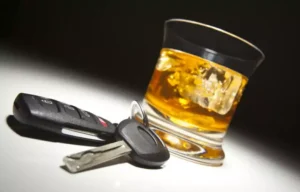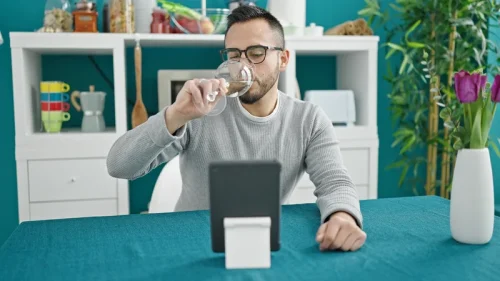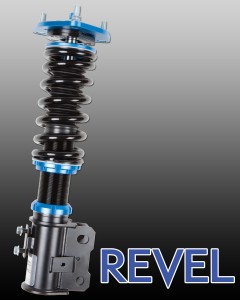
Merle Myerson is a board-certified cardiologist with specialties in sports medicine, lipids, women’s health and prevention of cardiovascular disease. “Some of the new diabetes medications have a diuretic effect, and that could cause dehydration” in people with diabetes, Vaishnava says. Research can alcohol lower blood pressure shows that regular use of acetaminophen can raise blood pressure, as can nonsteroidal anti-inflammatory drugs (NSAIDs), including ibuprofen and naproxen. If you already have high blood pressure, NSAIDs can prevent several common meds such as ACE inhibitors and diuretics from doing their job.
Irregular heartbeat
If you have been diagnosed with high blood pressure, you will need to work with your physician to develop a plan to manage it. In some cases, hypertension can be reversed through lifestyle changes, such as eating a healthy diet, exercising regularly, and reducing or eliminating alcohol intake. The Centers for Disease Control and Prevention (CDC) reports a correlation between alcohol consumption and various short- and long-term health risks. A 2018 study showed that no amount of alcohol is considered safe, because its risks lead to a loss of healthy life. Some studies suggest low amounts of alcohol may provide health benefits.
- The studies included participants from the United States, Japan, and South Korea.
- Withdrawal symptoms may occur, and individuals are advised to seek professional help if needed.
- If you drink regularly, you might feel like alcohol doesn’t affect you as much, but this usually means you’ve developed a tolerance to some of the effects.
- Both ST and CT independently assessed studies for inclusion or exclusion and assessed the risk of bias of all included studies.
Blood calcium levels
- We observed a greater reduction in blood pressure after a moderate dose of alcohol consumption for the unblinded studies, which was probably due to the presence of a heterogeneous population.
- You need to determine your lifestyle and genetic risk factors first, says Arthur Klatsky, MD, an investigator for Kaiser Permanente’s research division and formerly its chief of cardiology in Oakland, CA.
- An increase in plasma renin results in increased production of angiotensin I (AI), which is converted to angiotensin II (AII) by angiotensin‐converting enzyme (ACE).
- The UK Chief Medical Officers’ (CMO) low risk drinking guidelines advise that people should not regularly drink more than more than 14 units a week to keep health risks from alcohol low.
- Because the numbers of included studies that fell into our pre‐specified dose categories were not comparable, we were unable to conduct a comprehensive dose‐dependent analysis.
- Hypertension is rising in prevalence due to the rising mean age of the population as well as due to the increased prevalence of poor dietary patterns and other lifestyle factors.
Follow your healthcare professional’s advice on how to manage cholesterol and blood sugar. If you have high blood pressure, it’s important to discuss any risk factors with your healthcare provider, including alcohol consumption. This article explains the connection between alcohol and hypertension, explores the effects of different types of alcohol, and discusses safe alcohol consumption. Heart rate was increased by 4.6 bpm six hours after drinking alcohol compared to placebo. Intermediate (7 to 12 hours) and late (after 13 hours) effects of the medium dose of alcohol on HR were based on only four trials and were not statistically different compared to placebo. We created a funnel plot using the mean difference (MD) from studies reporting effects of medium doses and high doses of alcohol on SBP, DBP, MAP, and HR against standard error (SE) of the MD to check for the existence of publication bias.
Papaseit 2016 published data only
Mixing of various measurement techniques (manual, semi‐automated, and fully automated) in the meta‐analysis might have led to some of the heterogeneity. The blood alcohol level decreased over time, and 20‐HETE started to rise (Barden 2013). The hypertensive effect of alcohol after 13 hours of consumption could be the result of the rise in vasoconstrictors and the homeostatic response to restore blood pressure.
Kaul 2010 published data only
According to the published protocol, we intended to include only double‐blind RCTs in this review. Because higher doses of alcohol exert specific pharmacological effects on drinkers, we had a few double‐blind RCTs after the first screening. Considering the difficulty of masking in these types of studies, we decided to also include single‐blind and open‐label studies in the review. We created three SoF tables to show the certainty of evidence and the summary of effects on outcomes of interest (SBP, DBP, and HR) for high (Table 1), medium (Table 2), and low doses (Table 3) of alcohol.
With these interventions, people can find health and happiness in sobriety. Despite the clear benefits, the journey towards alcohol abstinence can present challenges. Withdrawal symptoms may occur, and individuals are advised to seek https://ecosoberhouse.com/ professional help if needed. Over time, the body experiences positive changes, with the liver, in particular, benefiting from the absence of alcohol-related stress, allowing for detoxification and repair processes to take place.

References to studies included in this review
We classified six studies as having low risk of performance bias (Dai 2002; Narkiewicz 2000; Nishiwaki 2017; Potter 1986; Rosito 1999; Van De Borne 1997). In this study, all test drinks were poured into paper cups to achieve blinding of participants. We contacted the author of Rosito 1999 to request additional information regarding the method of blinding used. The study author explained the blinding method in detail in an email, so we classified this study as having low risk of bias. The molecular mechanisms through which alcohol raises blood pressure are unclear. Alcohol can affect blood pressure through a variety of possible mechanisms.

Mori 2016 published data only
Low, moderate, and high alcohol consumption increased heart rate within the first six hours. High alcohol consumption also increased heart rate from 7 to 12 hours and after 13 hours. Most of the evidence from this review is relevant to healthy males, as these trials included small numbers of women (126 females compared to 638 males). This review did not find any eligible RCTs that reported the effects of alcohol on women separately. Because women could be affected differently by alcohol than men, future RCTs in women are needed. If future RCTs include both men and women, it is important that their blood pressure and heart rate readings are reported separately.
How Alcohol Affects Blood Pressure






